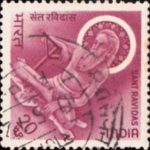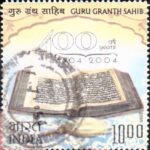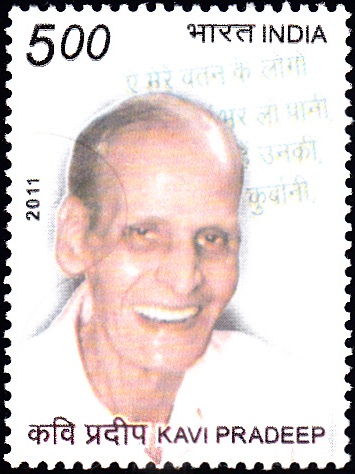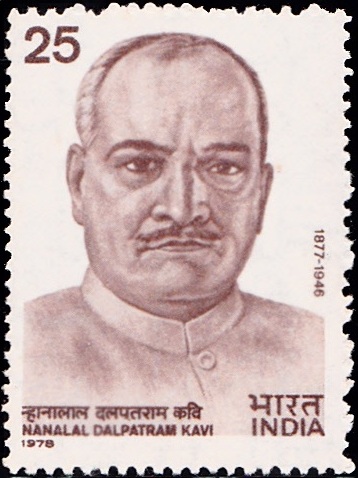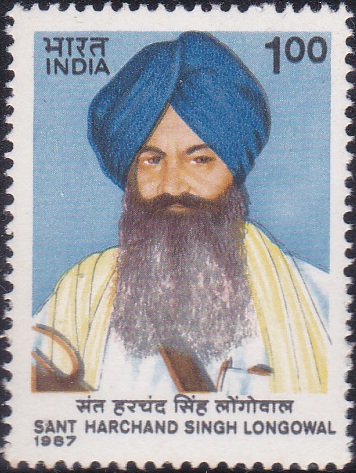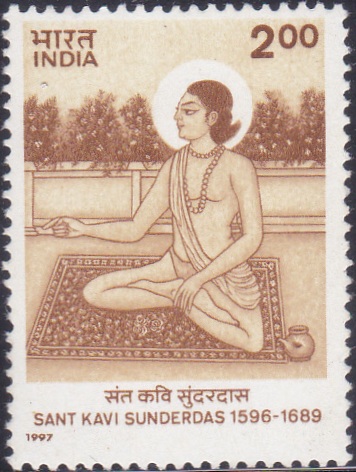
Sant Kavi Sunderdas
A commemorative postage stamp on the 400th Birth Anniversary of Sundardas, the Sankaracharya of Hindi literature : 
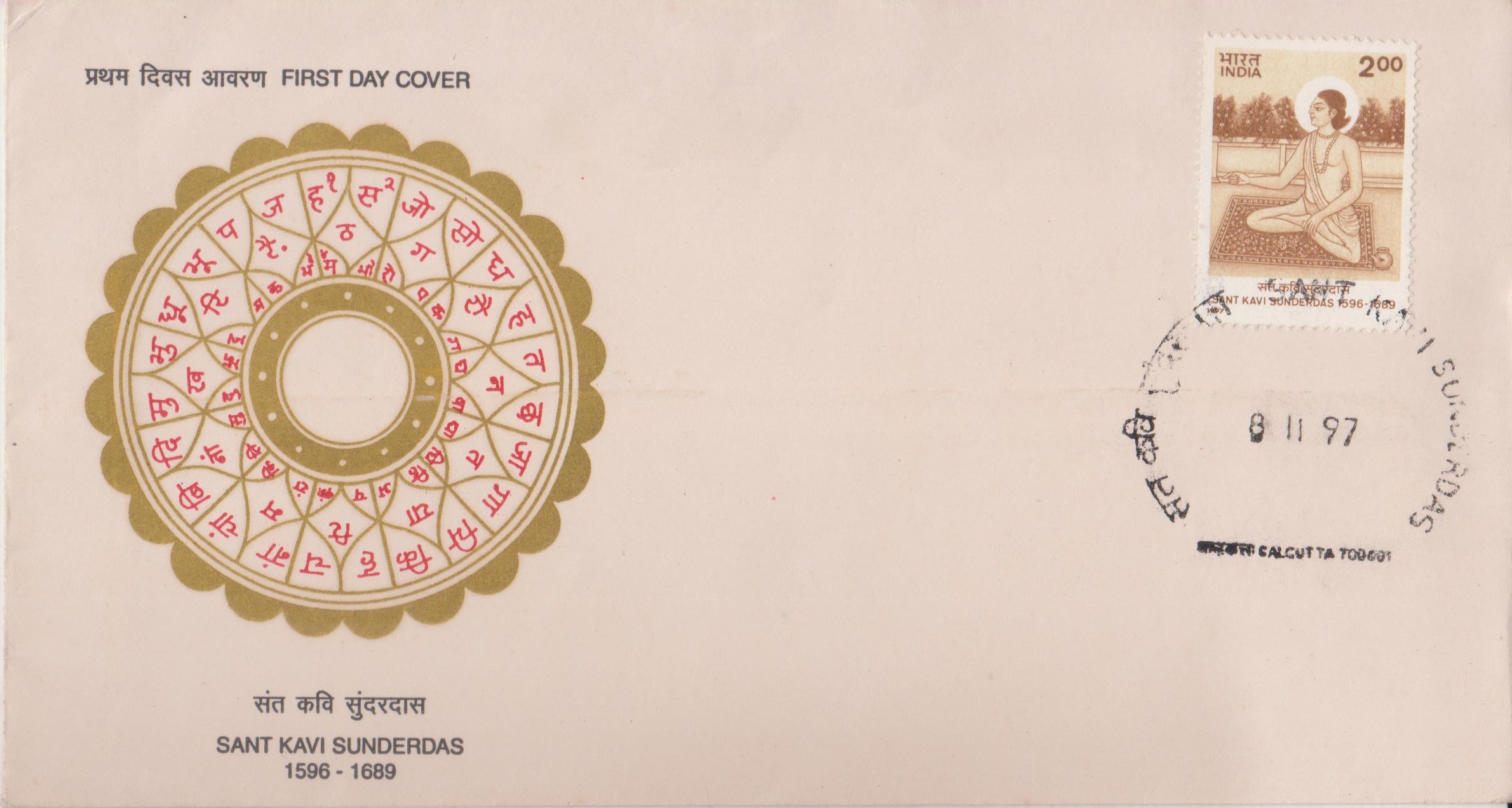 Issued by India
Issued by India
Issued on Nov 8, 1997
Issued for : The Department of Posts is happy to issue a special commemorative stamp in honour of Sant Kavi Sunderdas.
Design : On the First Day Cover, “Kankan-bandh” composed by the great poet Sunderdas, has been depicted which is a form of pictorial poetry. Every word is inlaid like a gem in a bracelet. This pictorial poetry is read in a special way.
Credits :
Stamp, F.D.C., Text : Sant Sunderdas Memorial Research Institute, Indian Languages Conference, New Delhi.
Type : Stamp, Mint Condition
Colour : Single Colour
Denomination : 200 Paise
Overall size : 3.91 x 2.54 cms.
Printing size : 3.55 x 2.54 cms.
Perforation : 13 x 13
Paper : Indegenous un w/m Adhesive Gravure Coated Stamp Paper in reels 47 cms width
Stamps Printed : 0.4 Million
Number per issue sheet : 35
Printing Process : Photogravure
Printer : India Security Press, Nashik
Name : Sunderdas
Born on 1596 at Dausa, Rajasthan, India
Died on 1689 at Dausa, Rajasthan, India
About :
- Sant Kavi Sunderdas was born at the old capital Dausa (Dyosa) of Jaipur states on Chaitra Shukla Ramnavmi in Samvat 1653 Vikram (1596 AD). He had his early education in Varanasi. He spent many years in “Yoga–sadhana” and self-study. He travelled to many parts of India. His impressions later evolved through the medium of his poetry.
- Revered as “The Sankaracharya“ of Hindi literature, Sant Sunderdas led a vehement attack on the ills of society. He openly opposed casteism, communal parochialism, and indulgence in hypocrisy. He awakened self-respect towards one’s mother tongue.
- In his life span, Sant Sunderdas composed about 48 books, such as ‘Gyan Samudra‘, ‘Sarvangyoga Pradipika‘, ‘Panchendriya Charitra‘, ‘Sukh Samadhi‘, ‘Guru Sampradaya‘, ‘Bhram Vidhwans Ashtak‘, ‘Ramashtak‘, ‘Punjabi Bhasha Ashtak‘, ‘Pir Murid Ashtak‘, ‘Barahmasan‘, ‘Ayurbal Bhed Ashtak‘, ‘Purabi Bhasha Ashtak‘, ‘Sakhi Granth‘, ‘Padavali Granth‘, ‘Savaiya Granth‘ and ‘Chitrabandh Rachnayen‘ etc. These works not only embodied the voice of conscience but kindled the light of self-independence also. In his simple language adorned with idioms, proverbs and quotes, Sant Sunderdas created firm faith in the values of life in the medieval Indian society. In his works, along with the form of Braj language in Hindi, a combination of Avdhee, eastern dialect, Gujarati, Punjabi, Sindhi, Khariboli, Marwari, Urdu and Sanskrit is found.
- Rabindranath Tagore has rightly said, “Among philosophical poets, Sunderdas alone was a scholar well versed with the scriptures. He was not only a poet but a research scholar also.“
- On Kartik Shukla Ashtami (Gopashtami) Samvat 1746 Vikram (1689 AD), at the age of 93, Sant Sunderdas left for his heavenly abode. In his last couplet, he said that death is the union of spirit with god and, therefore, it is nothing but a festivity.


